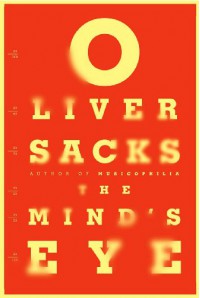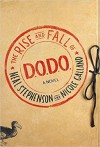Currently reading
Seeing without interpreting what you see...

In this book, he gave some stories on how persons lost their "mind eye", that they see something without interpreting what it is.
This happened to Pat, who after years of performing on piano, lost her ability to read music. She has to do it by memory.
This also happened to a crime fiction writer who could no longer read. Audio reading could help some persons but for those who reading is an important part of life, he learned to read again slowly.
He then goes into his own prosopagnosia, the difficulty in recognizing faces.
Another one, which is Capgras, is recognizing the face but without the usual familiarity that goes with it. That reminded me of a TV show, with the wife suddenly seeing her husband and thought he was an impostor. While people suffered from prosopagnosia know that it is their brain that is at fault, people suffered from Capgras would consider that they are fine, and everyone else is wrong.
He also shared his experience when he got cancer in the eye. Oh, dear. Oh poor poor dear.
He was adjusting to the illness and gone through treatment. But it is horrible to lost your sight.
Also, he shared experience in someone else who got blind. I'm not impressed with Hull's one, as he lost his memory of sight too. I like the one with a blind person holding on to his imagination in colors. If I go blind, I would try to stay visual in my mind.
So, there are a range with the visualization bit, that is either more link to "mind eye" or to the "what we see". Internal visualization being used by the blind people have illustrated to us how we visualizing things and places without really seeing them. Blind people might become better in describing things and places as they are more relying on the language than to just say "there".
The last story of Arlene explained how sighted people enjoy travelling with her, as she would ask them to see things. In her words, "too often people don't see anything!"
Oliver Sacks said this as his conclusion.
"Language, the most human invention, can enable what, in principle, should not be possible. It can allow all of us, even the congenitally blind, to see with another person's eyes."
Conclusion.
A good fast read. A lot of stories. Some personal. Not technical. But make me understand more about my sight, and how I take this for granted for too long.
 3
3












